The Cambodian national election this Sunday will almost certainly propel the country’s sitting prime minister, the 61-year-old Hun Sen, into his fourth decade of rule.
Asia’s longest-serving elected leader, Hun Sen has held power since 1985, and his Cambodian People’s Party enjoys all the advantages of decades-long incumbency: pliant government institutions, favorable media coverage, and powerful tycoon backers. The CPP has increased its share of the vote at every national poll since 1993 and currently holds 90 of the 123 seats in the National Assembly.
In Cambodia, elections have never been truly free or fair. Nor have they been peaceful. But even by Cambodian standards, circumstances this year heavily favor the ruling party. What independent election monitors delicately label “irregularities” abound. According to a recent audit of voter lists, nine percent of voter names have disappeared from the national rolls, and one in ten belongs to voters who do not exist. The CPP also boasts genuine popular support; much of the population feels grateful for the thousands of roads, bridges, schools, and Buddhist pagodas built under the party’s rule.
Cambodia’s travails fail to attract much attention in Washington nowadays, but its impending election has shone a rare spotlight on Hun Sen’s iron-fisted rule. In recent months, the U.S. State Department rebuked the prime minister after his government ejected 28 opposition lawmakers from the parliament and ordered a ban — since revoked under U.S. pressure — on foreign radio broadcasts during the 31-day campaign period. Then, on June 7, U.S. Senators Lindsey Graham and Marco Rubio (R–Fla.) sponsored a resolution that would reduce U.S. aid to Cambodia if the State Department does not deem the upcoming election “credible and competitive.” Meanwhile, U.S. Representative Dana Rohrabacher (R–Calif.), a longtime Hun Sen critic whose California district is home to a large Cambodian diaspora community, recently described the prime minister as “a corrupt, vicious human being, who has held that country in his grip for decades.” “It’s time,” he added, “for Hun Sen to go.”
Critics in Congress are not calling for a new policy so much as a return to an old one. U.S.-Cambodia relations have warmed only recently, thawing a long-standing freeze that dates back to Hun Sen’s violent overthrow of his chief political rival, Prince Norodom Ranariddh, in 1997. In the wake of Hun Sen’s coup de force, Rohrabacher denounced the Cambodian premier as a “new Pol Pot” on the floor of the U.S. House of Representatives. Although Cambodia hawks such as Rohrabacher have remained vocal, the United States has gradually learned to live with the Cambodian strongman. It has had little choice: After Hun Sen’s takeover, China began pouring billions of dollars’ worth of “no-strings attached” loans and investments into the country, reducing Cambodia’s dependence on U.S. and Western development aid, which was often tied to democratic and good governance reforms.
Washington has long worried about Phnom Penh’s increasing closeness with Beijing, but it was not until the terrorist attacks of 9/11 that the United States took major steps to reassert its influence. In 2003, U.S. authorities learned that the Indonesian terrorist known named Riduan Isamuddin (also known as Hambali) — a rare non-Arab member of Osama Bin Laden’s inner circle — had planned to use Cambodia as a base for bombings throughout Southeast Asia. Concerned that Cambodia, with its porous borders and marginalized Muslim minority, could become a terrorist safe haven, the George W. Bush administration embraced Hun Sen as a new partner in the global war on terror, lifting restrictions on military assistance in 2005. Two years later, the United States resumed direct foreign assistance after a decade-long hiatus.
When the Obama administration announced its so-called pivot to Asia, it quietly reconfigured the alliance, turning a partnership against terrorism into a bulwark against China. In 2008, Hun Sen gave his 35-year-old son, Hun Manet — a graduate of the United States Military Academy at West Point — command of Cambodia’s National Counterterrorism Special Force, then newly established with U.S. assistance. In 2009, the two countries exchanged defense attachés and subsequently initiated Angkor Sentinel, an annual joint military exercise. This year, the United States plans to give Cambodia $70 million in aid, mostly to nongovernmental organizations, with around $6 million earmarked for military aid.
One side effect of the U.S. pivot — in Cambodia and the broader region — has been the downgrading of democracy and human rights as U.S. priorities. Vietnam’s escalating attacks on civil rights and free speech, for example, have not dampened U.S. diplomacy there; Vietnamese President Truong Tan Sang will pay an historic visit to the White House this week. Nor have concerns about democracy deterred the United States from restoring ties with Myanmar (also known as Burma), a country whose recent “reforms” have papered over festering ethnic conflicts and state-backed pogroms against Muslims. And of course, Hun Sen continues to trample democracy.
But U.S. relations with Cambodia do fall somewhat outside the wider trend of Washington’s pivot. Since the Obama administration achieved its breakthrough with Myanmar, relations with Phnom Penh have cooled. When President Barack Obama visited Cambodia for the East Asia Summit in November 2012, he was visibly unfriendly toward Hun Sen, even as the Cambodian strongman gripped his hand and flashed a hearty grin for the cameras. (The CPP has since used photographs of the handshake as propaganda in the current presidential campaign.) In a tense closed-door meeting, Obama chided the Cambodian strongman on a range of human rights issues, including recent land seizures and political arrests. Just days earlier, Obama had gleefully shaken hands with Myanmar’s President Thein Sein, a former general who has led the country’s much-vaunted democratic opening. In May, Sein made a return visit to the White House, an invitation to which Hun Sen reportedly covets.
As much as he craves international legitimacy (as was evident during Obama’s visit), Hun Sen remains highly sensitive to any hint of Western hypocrisy.
What explains this double standard? For one, the rehabilitation of the junta in Myanmar may have “dictated a need to find a new bad boy in Asia, with the target switching to Hun Sen,” explains Don Jameson, a retired U.S. Foreign Service officer who held posts in both Cambodia and Myanmar. With U.S influence on the rise in Myanmar, which lies in the strategically crucial crossroads between China and India, Cambodia has become more expendable to policymakers — and more vulnerable to congressional pressure. Charles A. Ray, who served as U.S. ambassador to Cambodia during the George W. Bush administration, suggests that Obama may also be responding to domestic pressure. “The Burmese had made some concrete moves that are along the lines we want and that allow us to say ‘progress’ is being made,” he says. “Cambodia has not made a lot of fast progress, so [Obama’s] advisers probably told him not to alienate the neo-cons in Congress by being too friendly with a dictator that they don’t like.”
Yet as bad as Hun Sen’s abuses may have been, they never approached the scale of atrocities committed by the Burmese government. And many analysts argue that recent reforms merely conceal an enduring military rule behind a new civilian facade.
It is just as hard to see how cutting aid or wielding a megaphone would advance democracy or human rights in either Cambodia or Myanmar. For one thing, the proud and prickly Hun Sen would probably call a U.S. bluff. As much as he craves international legitimacy (as was evident during Obama’s visit), Hun Sen remains highly sensitive to any hint of Western hypocrisy. Vietnamese diplomats told their U.S. counterparts as much behind closed doors in 2006, advising that “incentives will have more of an effect on Hun Sen than criticism.”
Like other Cambodians who came of age during the Vietnam War, Hun Sen remembers well the devastating U.S. B-52 raids of the late 1960s and early 1970s. Many historians believe the bombings gave rise to the Khmer Rouge regime, which killed an estimated 1.7 million people during its four-year rule. After the regime fell to a Vietnamese invasion in 1979, the United States and its allies treated the new, Hanoi-installed government (of which Hun Sen was a member) as an international pariah. The United States worked to keep Khmer Rouge diplomats in the United Nations until 1991.
This history forms the basis of long-held (and legitimate) Cambodian grievances that explain why the country responded so negatively to Obama scolding Hun Sen last November. Sources who work with the U.S. embassy in Phnom Penh say the U.S. embassy’s influence has consequently diminished, a development that harms U.S. interests — and, where human rights are concerned, those of the Cambodian people.
If the United States wants to advance human rights and democracy in Cambodia, then it must play a long game, blending quiet diplomacy, public condemnation when necessary, and funding that supports Cambodian civil society — in short, what Washington had been doing, until recently, for close to a decade.
In dealing with small countries like Cambodia, U.S. policymakers have assumed that they can afford to defend democracy loudly without endangering crucial national interests. But Cambodia’s size belies its importance, especially in a region where Washington has been looking for opportunities to gain strategic ground against China. Given Cambodia’s strong ties to Beijing — and its fraught history with the United States — diplomacy must walk a fine line. “Human rights issues in Cambodia need to be raised,” says Carl Thayer, an analyst at the Australian Defence Force Academy, in Canberra, but “it shouldn’t be the focal point of the relationship.”
The tragedy for the long-suffering Cambodian people is that no shortcut to democracy exists — no quick fix of the sort that periodically transfixes U.S. policymakers. Washington’s recent push to cast Hun Sen in the role of regional pariah is proving counterproductive, undermining both the wider aims of the pivot and any chance of nudging Cambodia in a more democratic direction. With Hun Sen poised to win another scripted election, the United States must decide what sort of relationship it wants with Cambodia — and whether the politics of the pivot can coexist with the promotion of human rights. According to Jameson, it is a question that policymakers have never seriously asked since the 1960s. Cambodia, he says, has always seemed “too small for policymakers in Washington to take seriously — except when they need to blow off steam.”
Published by ForeignAffairs.com, July 25, 2013

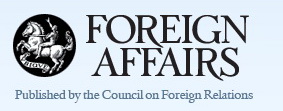
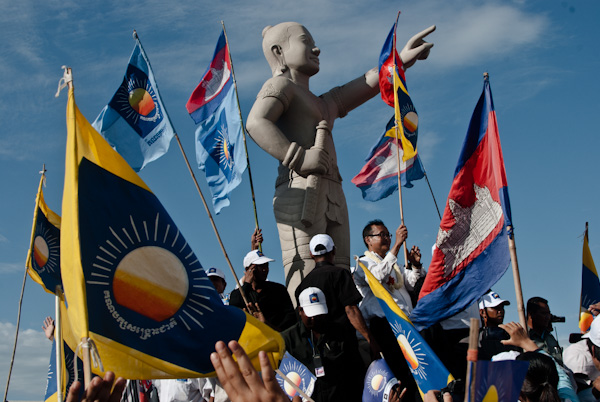
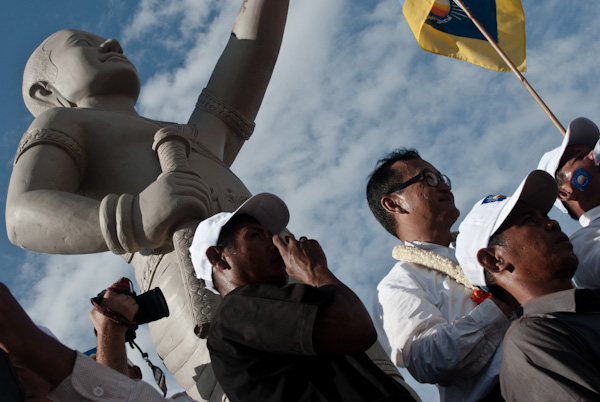
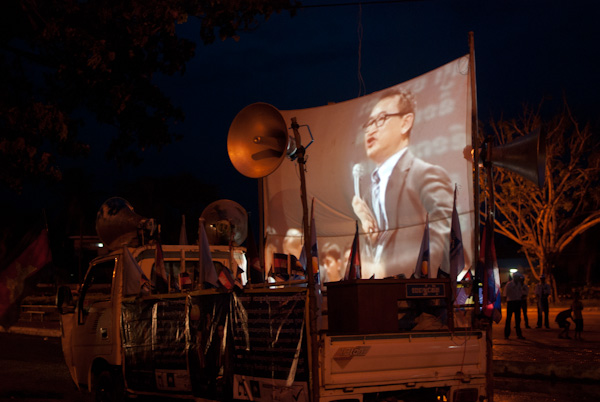
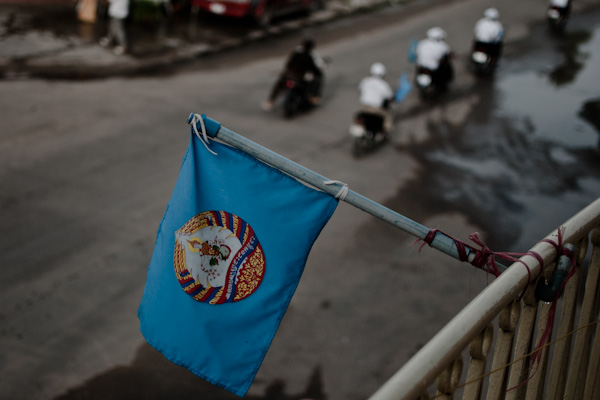
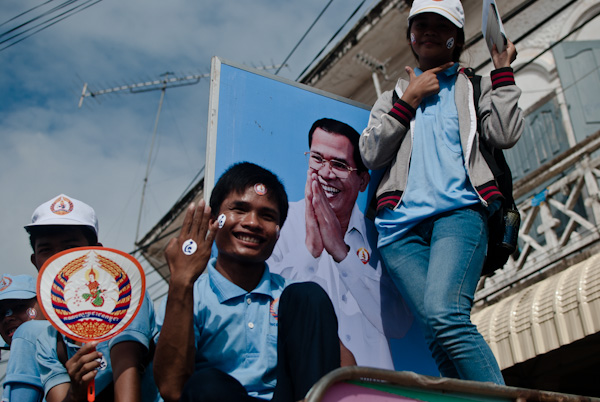
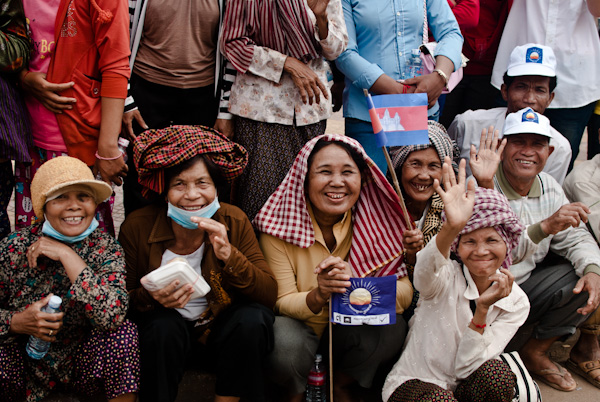
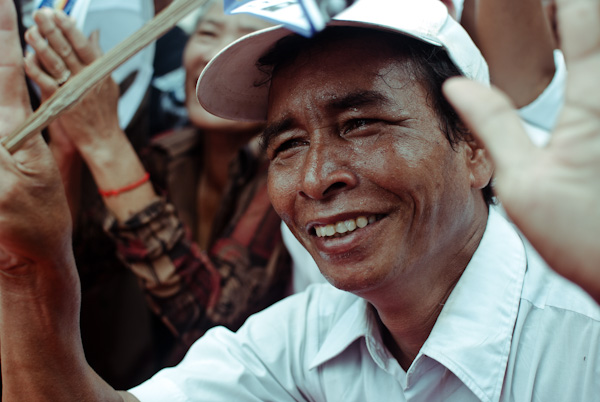
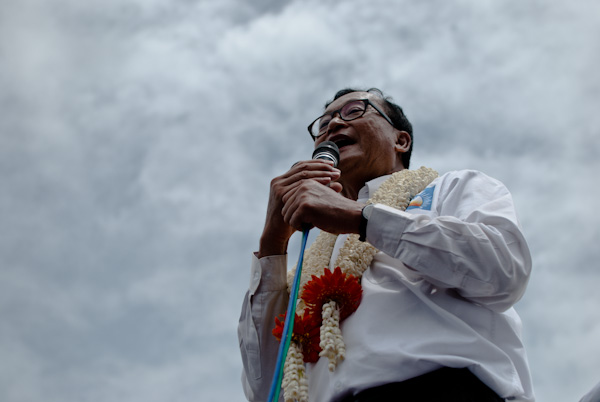
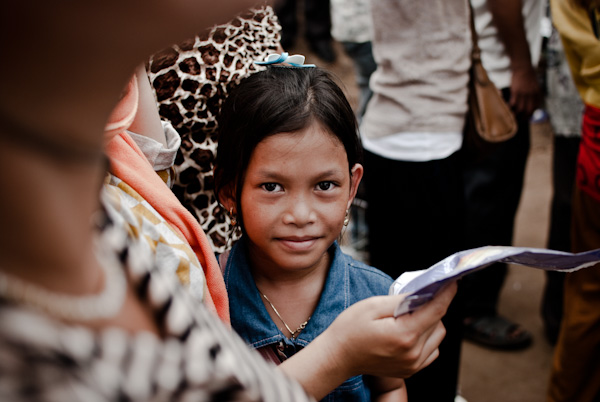
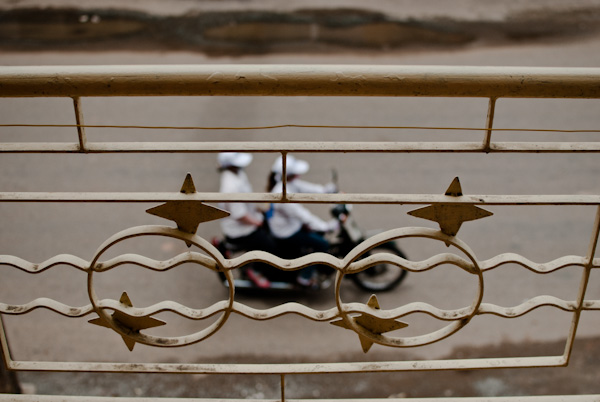
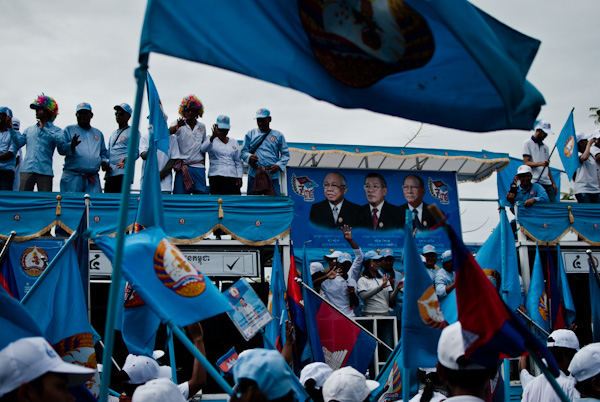


1 comment
សុខ ខេមរា says:
Sep 6, 2013
បោះឆ្នោតដើម្បីបក្ស ដើម្បី បុគ្គល រឺបោះឆ្នោតដើម្បី ប្រជាជន? តើពេលណា អាចយល់ដឹង ចេះថ្លឹងថ្លែងបានល្អប្រសើរជាងនេះ?